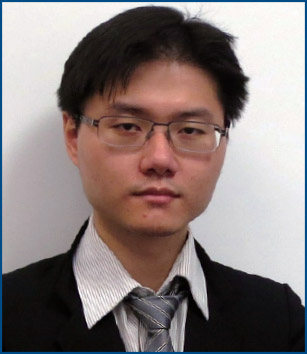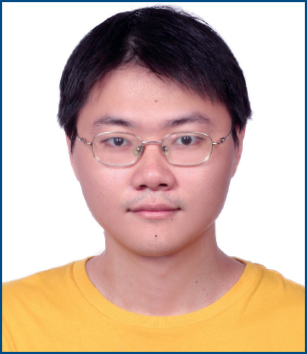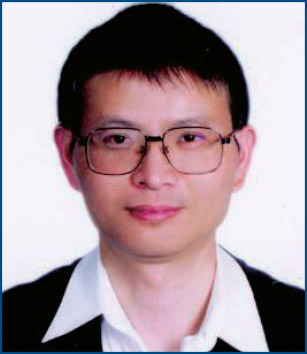April 26, 2023
TSMC Tops List of Patent Applications in Taiwan For the seventh consecutive year, Taiwan Semiconductor Manufacturing Co. (TSMC), the world’s largest contract chipmaker, took the top spot among patent applicants in Taiwan. The latest figures just in are for 2022, and TSMC filed a total of 1,534 applications, which was actually a 21% drop from 2021. All of TSMC’s patent applications were for invention patents. Last year, the total number of invention patent applications stood at 50,242 cases, which was a 10-year high. Of the foreign applicants, US-based semiconductor equipment supplier Applied Materials Inc. last year was Taiwan’s largest patent seeker, filing 881 applications comprising 847 invention patents, 2 utility model patents and 32 design patents. Qualcomm dropped from first to second place with 763 applications, which was 10% lower than 2021. South Korean conglomerate Samsung Electronics Co. took third place in the foreign applicants’ rankings with 675 applications, an increase of 30%, followed by Japan-based semiconductor supplier Tokyo Electron Ltd. with 487 applications. Most of the foreign patent applicants were from the semiconductor, information technology and chemical industries. Categorized by country, Japan held the top spot with 13,128 applications, the US was second with 8,517 and China third with 4,424. Amongst local applicants, PC brand Acer was second last year with a total of 530 patent applications, which was an increase of 15%. Third was flat panel maker AUO Corp. with 505, up 7% and ahead of smartphone IC designer MediaTek Inc. with 412 applications in fourth position. It should be noted that Hon Hai Precision Industry Co. was not in the leading ranks of applicants because a... March 22, 2023
Tax Cuts No Guarantee for Taiwan to Maintain Taiwan’s Chipmaking Lead Tax cuts passed by the Legislature in January, 2023, are just one step of many that need to be done to prepare Taiwan’s semiconductor manufacturers for future competition with other companies in the chipmaking field. Lawmakers passed amendments to the Statute for Industrial Innovation offering income tax cuts of up to 50% from Jan. 1, 2023 to Dec. 31, 2029 for companies that meet the requirements that are engaged in work that innovates technologies domestically and occupy a critical position in international supply chains. The intention is that semiconductor manufacturers will continue to invest in Taiwan and help cement its standing as the world’s second largest semiconductor supplier. Experts at the Taiwan Institute of Economic Research say that one area to expand on is wafer fabrication. Currently, Taiwan has a relatively low output of materials and equipment for wafer fabrication, which are mostly imported, and if it wants to have more control over supply chains, it must work to address that weakness. Another aspect to global competitiveness is that, as other economies such as South Korea, Japan, Europe and the U.S. pick up the pace to bolster their own positions in their respective semiconductor supply chains, it is highly likely that they will try to poach semiconductor engineers from Taiwan. Offers of competitive salaries, good social welfare terms and green cards could prove enticing for research and development personnel and executives at Taiwanese semiconductor companies. The College of Semiconductor Research sponsored by the public and private sectors is well placed to help Taiwan produce future skilled workers and... February 27, 2023
Taiwan Makes Revisions to Patent Examination Guidelines The Taiwan Intellectual Property Office made some revisions regarding procedural examination and patent rights management that came into effect in December, 2022. In Chapter 1 of the guidelines, the use of electronic signatures will be accepted provided both parties can agree to the validity thereof. The signee only needs to provide a form of signature (whether it be a signature, stamp, or electronic signature) that matches the signature on the application documents. In Chapter 3 of the guidelines, in accordance with adjustments made to procedural examination, revisions have been made to 3.1 Inventor Change, 4.1 Applicant Name or Title Change, and 4.5 Inventor Name Change. Case studies have been included to help the public better understand the principles of examination. The revisions also specify that applicants who are able to rectify inconsistencies on documents submitted with their applications do not fall under this category. In accordance with a judicial ruling, TIPO also included a case study explanation regarding name changes for different applicants who belong to the same entity. In Chapter 5 of the guidelines, procedures regarding three relevant scenarios concerning postponing the filing date, namely change in applying entity, addition of listed applicants and decrease in listed applicants have been clarified according to the relevant regulations. Taiwan Releases New Trademark Distinctiveness Examination Guidelines The Taiwan Intellectual Property Office released new examination guidelines for trademarks which came into effect on September 1, 2022. Here are some of the most notable clauses: Concerning words, when a word or combination of words is using a descriptive style, if it is depicted in a special... February 7, 2023
Taiwan IP Office Plans to Issue Electronic Certificates From the beginning of 2023, the Taiwan Intellectual Property Office (TIPO) will issue patent and trademark certificates in electronic form. In order to cut down on paper usage and delivery costs as well as offer the IP right holder convenience in document management, the initiative is part of the overall government plan to modernize office procedures and encourage sustainable practices. The applicant will have the option to choose either a paper or an electronic certificate upon paying issue fees. By opting for the electronic format, the applicant may still request a paper copy if later needed (but not vice versa). The process goes through the following several steps: After receiving a notice of issuance, the applicant is instructed to download the e-certificate within 6 months from a specific webpage or in 5 days via the E-SET platform (an electronic document delivery system). The e-certificate is issued as an encrypted PDF document with security measures, and there will be a code on each e-certificate. By uploading the e-certificate to TIPO or scanning the code, it will be possible to quickly verify the document’s authenticity or even see the latest legal status of the associated patent or trademark right. An e-certificate is also available upon re-issuance, recordation of patent assignment, inheritance, and trust. Taiwan Drafts Bill to Help High-Tech Companies Lawmakers in Taiwan introduced a draft bill to institute a new Article 10-2 of the Statute for Industrial Innovation. This new law aims to create tax incentives for high-tech companies investing in Taiwan. High-tech companies making Research and Development contributions to the semiconductor... December 28, 2022
Taiwan’s Judicial Yuan Announces Draft Amendment to the IP Case Adjudication Act Here are the highlights of what is likely to be the biggest overhaul of the IP Case Adjudication Act since it was implemented in 2008: The administrative remedy system for patent and trademark cases will change from the current administrative litigation system to the adversary system. If a party files an appeal with the court against a Decision rendered by the IP Office, the case will be tried in accordance with the civil procedure, and the defendant, depending on the nature of the case, may not be the IP Office, but instead may be the opposing party such as an invalidation petitioner, or the applicant of a cancellation action. Civil disputes relating to patents, software copyrights, and trade secrets will be mandatorily represented by lawyers. Unless the value of the plaintiff’s claim is low, that rule will be valid for other civil cases too. In principle, the court should discuss with the involved parties via their lawyers regarding the planning of a trial unless the case does not require legal representation. In patent litigation cases, the judge shall, in a timely and appropriate manner, disclose his or her interpretation of any disputed terms recited in the claims, ex-officio or upon the request of a party. Currently, reports drafted by court experts formally known as Technical Examination Officers (TEOs) are not disclosed to any parties. The Amendment now makes it clear that when a judge deems it necessary, he or she may disclose all or part of the content of the Reports drafted by TEOs and the parties... By Firm
Key Person Profile
Upcoming Events
Recent Past Events



 Deep & Far Attorneys-at-law
Deep & Far Attorneys-at-law Yu-Li Tsai
Yu-Li Tsai Lu-Fa Tsai
Lu-Fa Tsai C. F. Tsai
C. F. Tsai







